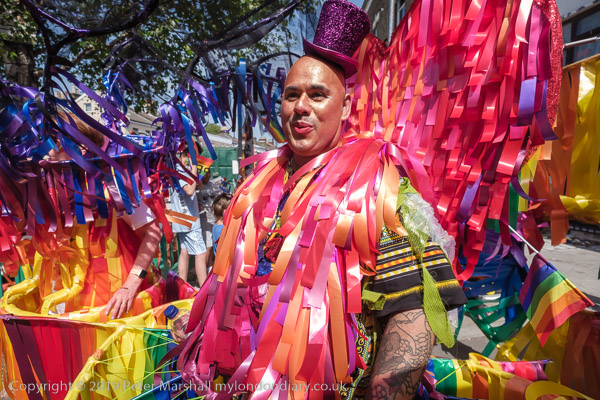
At 1:20 a.m. on Saturday, June 28, 1969, police began a raid on the Stonewall Inn in Greenwich Village, New York, a Mafia owned pub according to Wikipedia “known to be popular among the poorest and most marginalized people in the gay community: drag queens, transgender people, effeminate young men, butch lesbians, male prostitutes, and homeless youth.”
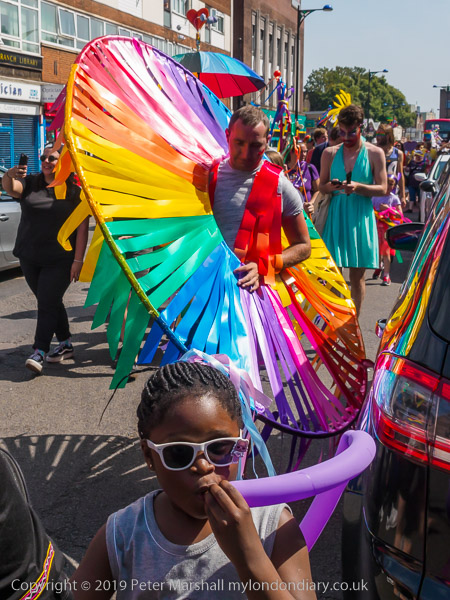
Police raids on gay locations were not uncommon, but usually the police who took money from bar owners and tipped them off in advance of the raids, but this hadn’t happened at Stonewall that night, probably because the police felt they weren’t getting enough payback.
In the raid, police separated all those dressed as women and as usual in such raids tried to get them to go into the toilet with a woman officer to be examined – and, if they had male genitals, arrested. But people refused, and men refused to show police their ID.
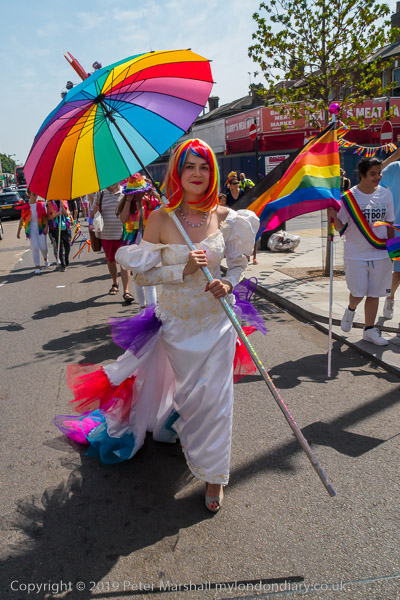
You can read a lengthy account of how the events developed in the Wikipedia article. The riots that arose from the raid, largely started by lesbians and transgender people who stood up to the police continued the following day and are generally accepted to have begun the gay liberation movement not just in the United States but elswhere across the world.
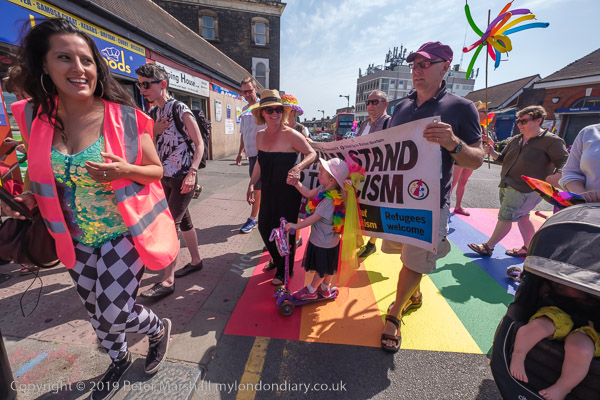
The annual Pride celebration in London is now largely a corporate event, a parade rather than a march, and although this year it was said to celebrate the 50th anniversary of Stonewall, to many it hardly seemed to do so in an appropriate fashion. But there are other Pride celebrations around London that now seem more authentic, and the Forest Gayte Pride festival had the advantage of taking place on the actual 50th anniversary of Stonewall, with events on the 28th and 29th June.
I arrived a few minutes late for the start of the Pride march in Forest Gate, which appeared to have started a little earlier than the time I had been given, but managed to photograph its final few hundred yards and the speeches in the Pride Market at its conclusion. Unlike the huge event in central London, this was very much a community event, and far more interesting for that.
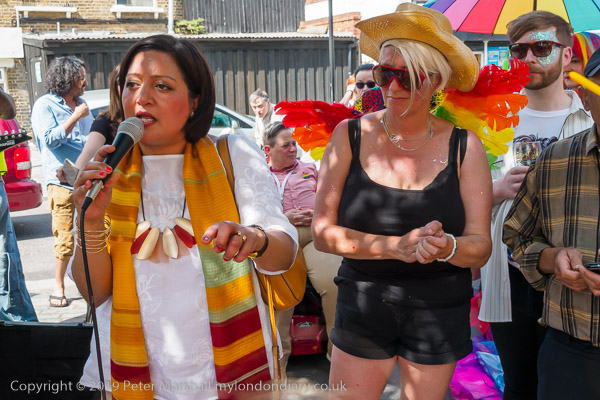
Among those who took part in the march and spoke was the local mayor Rokhsana Fiaz. She replaced the former mayor of Newham, Robin Wales, who had been mayor since the post was established in 2002 but was deselected in 2018 after a challenge to questionable voting procedures by affiliates which would have kept him in power despite the votes of local party members.
More at Forest Gayte Pride celebrates Stonewall 50
All photographs on this and my other sites, unless otherwise stated, are taken by and copyright of Peter Marshall, and are available for reproduction or can be bought as prints.
There are no adverts on this site and it receives no sponsorship, and I like to keep it that way. But it does take a considerable amount of my time and thought, and if you enjoy reading it, please share on social media.
And small donations via Paypal – perhaps the cost of a beer – would be appreciated.